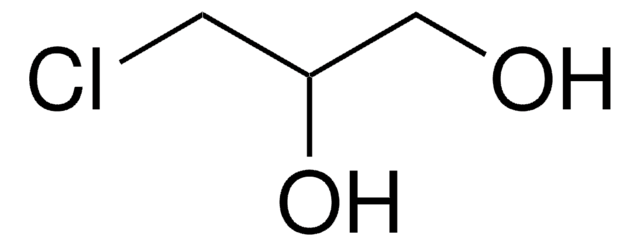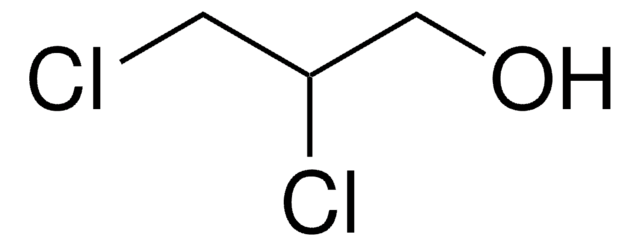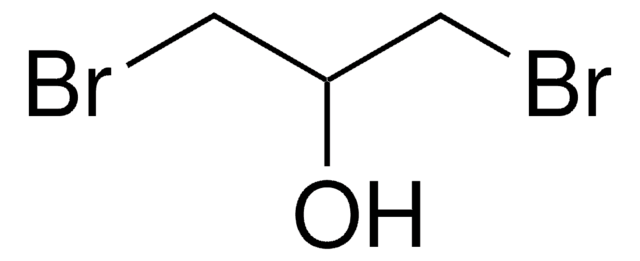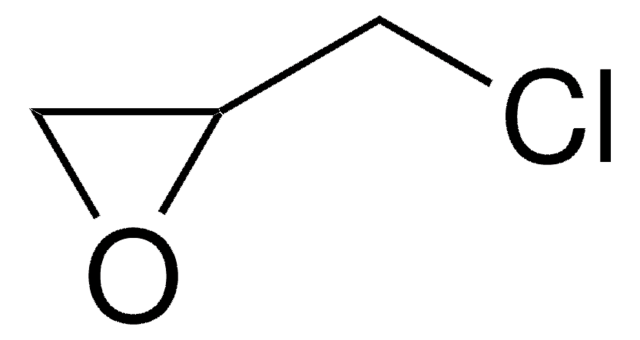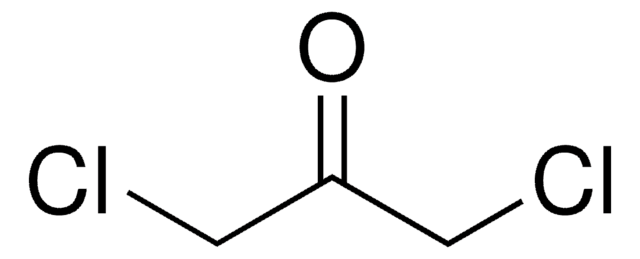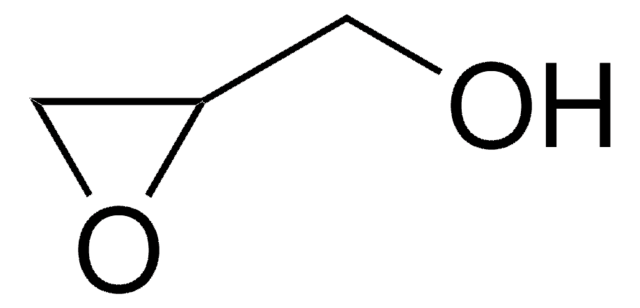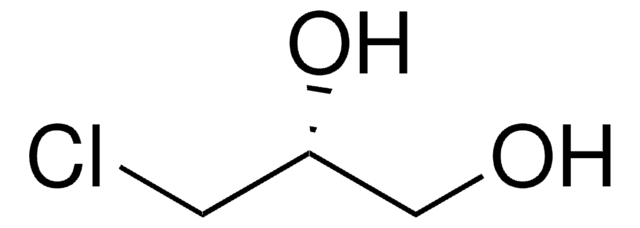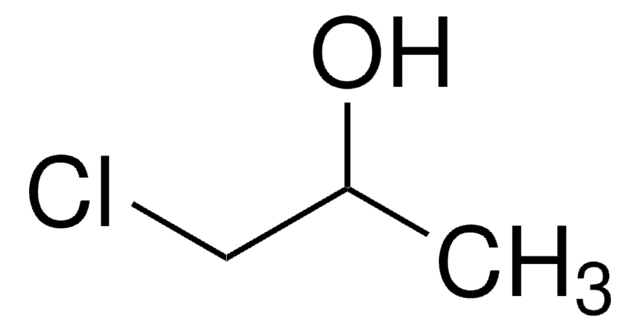184489
1,3-Dichloro-2-propanol
97%
Sinónimos:
Glycerol-α,γ-dichlorohydrin
About This Item
Productos recomendados
Nivel de calidad
Análisis
97%
formulario
liquid
índice de refracción
n20/D 1.483 (lit.)
bp
174.3 °C (lit.)
mp
−4 °C (lit.)
solubilidad
water: soluble 10 part
alcohol: miscible
diethyl ether: miscible
densidad
1.363 g/mL at 20 °C
1.351 g/mL at 25 °C (lit.)
grupo funcional
chloro
cadena SMILES
OC(CCl)CCl
InChI
1S/C3H6Cl2O/c4-1-3(6)2-5/h3,6H,1-2H2
Clave InChI
DEWLEGDTCGBNGU-UHFFFAOYSA-N
¿Está buscando productos similares? Visita Guía de comparación de productos
Descripción general
1,3-Dichloro-2-propanol is used as a pharmaceutical intermediate and solvent for paints, lacquers, and epoxy resins.
Aplicación
- Hydroxyl-N-tosylcyclams via sodium ethoxide catalyzed cyclization reaction with di(poly)-N-tosylamides.
- (R)-Epichlorohydrin using biocatalysts.
- 1,3-dichloropropene, a soil fumigant, and synthetic glycerol.
It can also be used as an intermediate in the production of epoxy resins, as well as a solvent for hard resins and nitrocellulose.
Palabra de señalización
Danger
Frases de peligro
Consejos de prudencia
Clasificaciones de peligro
Acute Tox. 3 Oral - Acute Tox. 4 Dermal - Carc. 1B
Código de clase de almacenamiento
6.1A - Combustible acute toxic Cat. 1 and 2 / very toxic hazardous materials
Clase de riesgo para el agua (WGK)
WGK 3
Punto de inflamabilidad (°F)
186.8 °F - closed cup
Punto de inflamabilidad (°C)
86 °C - closed cup
Equipo de protección personal
Eyeshields, Faceshields, Gloves, type ABEK (EN14387) respirator filter
Elija entre una de las versiones más recientes:
¿Ya tiene este producto?
Encuentre la documentación para los productos que ha comprado recientemente en la Biblioteca de documentos.
Los clientes también vieron
Nuestro equipo de científicos tiene experiencia en todas las áreas de investigación: Ciencias de la vida, Ciencia de los materiales, Síntesis química, Cromatografía, Analítica y muchas otras.
Póngase en contacto con el Servicio técnico